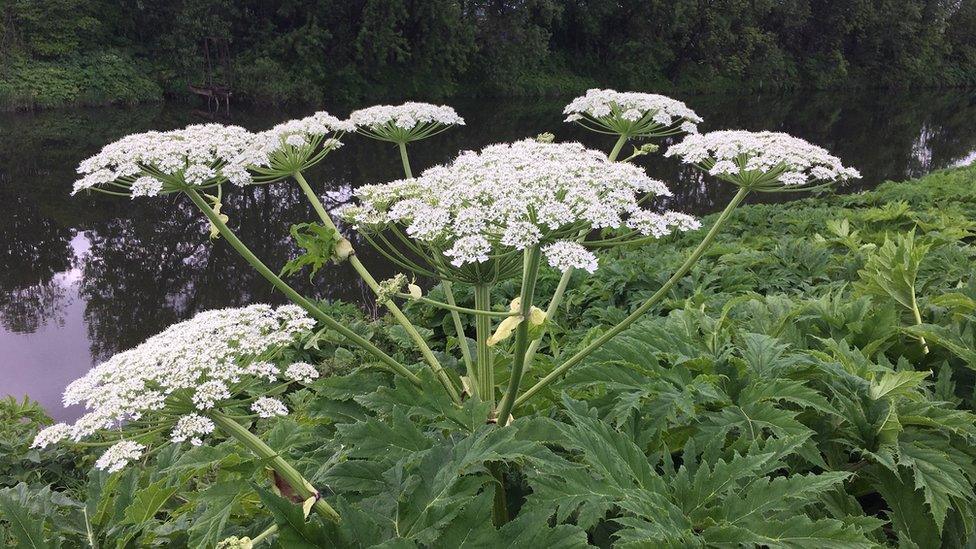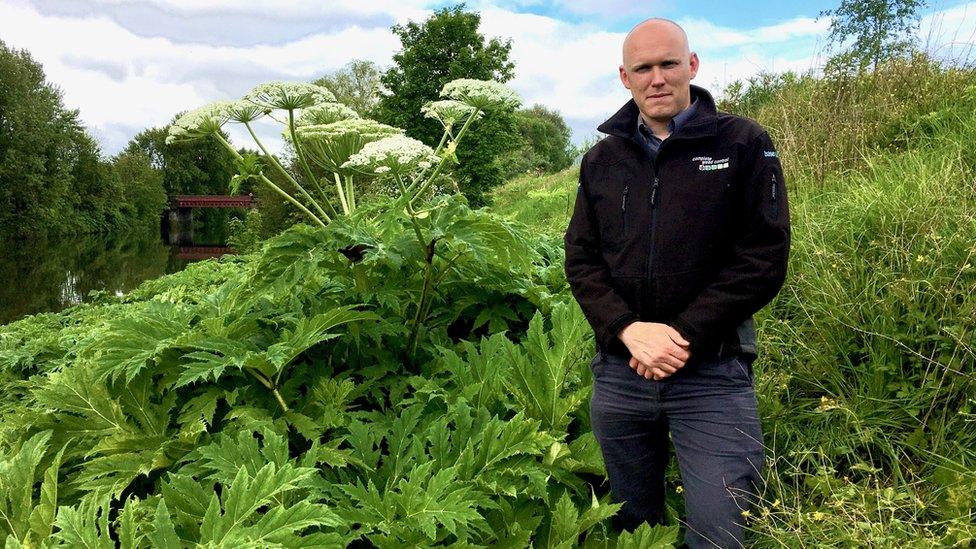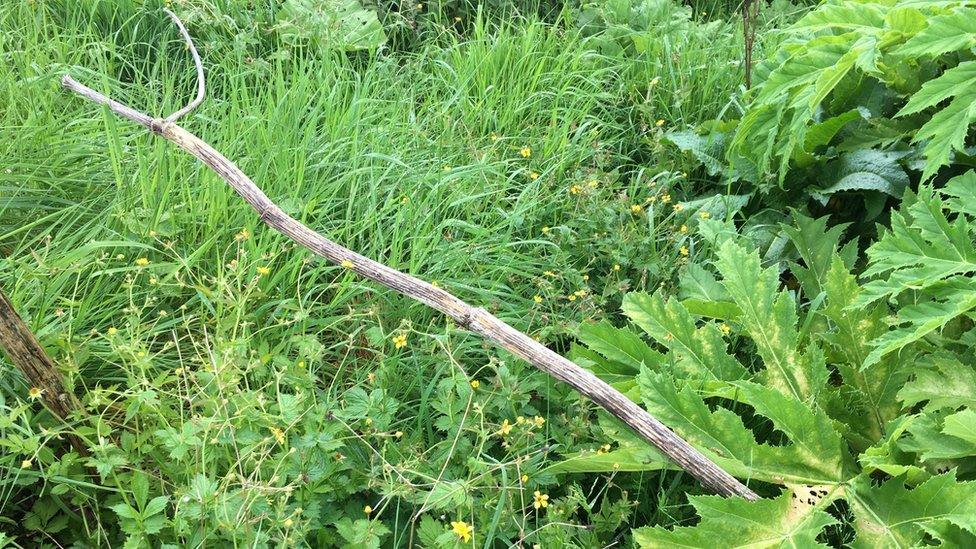'Nasty' Giant Hogweed thrives as lockdown cuts treatment
- Published

The giant hogweed is already flowering along the River Clyde in Lanarkshire
A mild winter and long periods of heavy rain have turbocharged the spread of giant hogweed on Scotland's river banks and the Covid-19 lockdown is making tackling the problem even harder.
Giant hogweed, an invasive plant which can be very dangerous to humans, was introduced to Scotland by horticulturalists as an ornamental plant in the 19th Century but it soon spread out of control.
It can grow to a height of several metres and looks like a giant parsley stalk, hence one of its names is giant cow parsley.
But hogweed is no gentle giant.
The toxic sap from large plants can cause life-changing burns, blisters and scarring if you come into contact with it.

Keith Gallacher said many hogweed plants are already flowering, weeks earlier than usual
Keith Gallacher's job is to get rid of it.
"From our point of view it is probably the nastiest weed that anybody will come across," he says.
Keith, who works for Complete Weed Control, based in Carluke, South Lanarkshire, says many hogweed plants are already flowering, weeks earlier than usual.
He says the plant needs to be tackled before it flowers because once that happens "you are fighting a losing battle".
Keith agrees that hogweed is like a time-bomb.
"It certainly is, if clients can't get on to site because of the lockdown and contractors can't get on to carry out the management plans, we will probably get a majority of plants going to seed and unfortunately, once they are at seed, it is too late."

A hogweed stalk from a previous year
On top of a mild winter, which caused earlier growth, long periods of heavy rain meant swollen rivers spread seeds far and wide along river banks and flood plains on twisty waterways such as the Forth, one of the worst affected.
And Covid-19 is making the battle against giant hogweed even harder than usual because lockdown means charities like Forth Rivers Trust cannot do their usual job of getting out volunteers armed with herbicide and protective clothing to fight back.
Alison Baker, from the trust, says: "Giant hogweed seeds will last up to 20 years, they are almost indestructible. And once they are in the environment it is almost impossible to get rid of them.
"So every year we need to do it. If we miss a year then you are obviously going to have a huge number of flowers, each of them with about 50,000 seeds in them, dispersing the seeds down the river."
She says a 15-year project to clear the river could be put back by two years by missing this season's treatment of the hogweed.
In the north of Scotland the Scottish Invasive Species Initiative is facing a similar problem.
Vicky Hilton, from the initiative, says: "We have stopped work with the lockdown so all our staff have not been able to get out and do any treatment ourselves but we have trained landowners and local farmers and some of them have been treating bits on their land locally."
But as well as human helpers in the form of landowners and farmers a five-year project led by the Scottish Invasive Species Initiative is using grazing sheep to eat giant hogweed.
It has proved effective along the River Deveron where salmon and trout fishing means herbicides cannot be used.
Richie Miller, of the Deveron, Bogie and Isla Rivers Charitable Trust, says: "We have found here that using sheep to graze hogweed has been highly successful.
"The sheep we are using is Black Face Sheep and the hogweed did not interfere with their skin and there has been no ill effects if the sheep are released on to the site early when the plants are small and they can keep on top of them.
"It has to be fenced off so the sheep are concentrated on an area and over the past number of years none of the plants have gone to seed which has reduced the seed bank hugely, so ultimately no spraying is required."
However, beside the rivers and roadside verges across much of Scotland grazing sheep probably are not an option.
Lockdown means the combination of people and herbicide to tackle the giant hogweed menace are not out in force and this dangerous invasive weed is spreading.